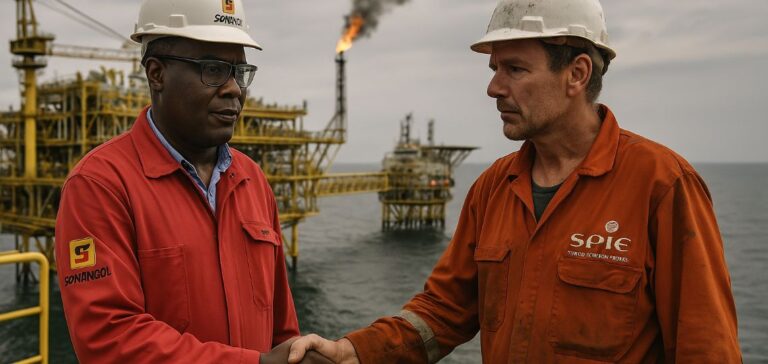SPIE Global Services Energy, a subsidiary of SPIE specialising in multi-technical services for the energy sector, has concluded a major agreement with Sonangol Exploração & Produção, the production arm of Angola’s state-owned oil company. The contract covers the general maintenance of the offshore Bloc 3/05 complex, located approximately 200 kilometres off the coast of Luanda. Effective since September 2024, the five-year deal includes the Cobo, Pacassa and Palanca platforms, which constitute the main production facilities of this oil field.
An extensive technical mission
SPIE Global Services Energy is providing maintenance services across the Bloc 3/05 installations, covering electrical, mechanical, heating, ventilation and air conditioning (HVAC) systems, along with turbomachinery, instrumentation, and automation systems. The company applies a maintenance approach prioritising corrective and conditional strategies, more suited to the site’s specific setup than conventional preventive methods. According to Jean-Claude Roumagnac, Director of Operations for Angola and Mozambique, the site demands a greater deployment of personnel and enforces a particularly high standard of operational safety.
SPIE has been operating on Bloc 3/05 since 2012. This long-term presence has enabled the development of a trusted relationship with Sonangol Exploração & Produção, a decisive factor in securing this new contract. The company now holds responsibility for full maintenance across all platforms of the site.
Local workforce nationalisation and training
As part of this contract, SPIE Global Services Energy continues to implement its workforce nationalisation strategy. In 2022, the company launched its own training centre in Angola. This initiative aims to enhance the skills of local employees and prepare them for strategic roles. Since January 2024, 256 employees have already taken part in this ongoing training programme, according to Jérôme M. Oliveira, Director of the Sub-Saharan Africa Business Unit.
The company targets 85% national employment by the end of the contract. This local development strategy played a key role in the contract award evaluation, according to SPIE representatives.
Christophe Bernhart, Managing Director of SPIE Global Services Energy, confirmed that this strategic contract strengthens the group’s position as a leading provider of energy maintenance services in Angola.






















